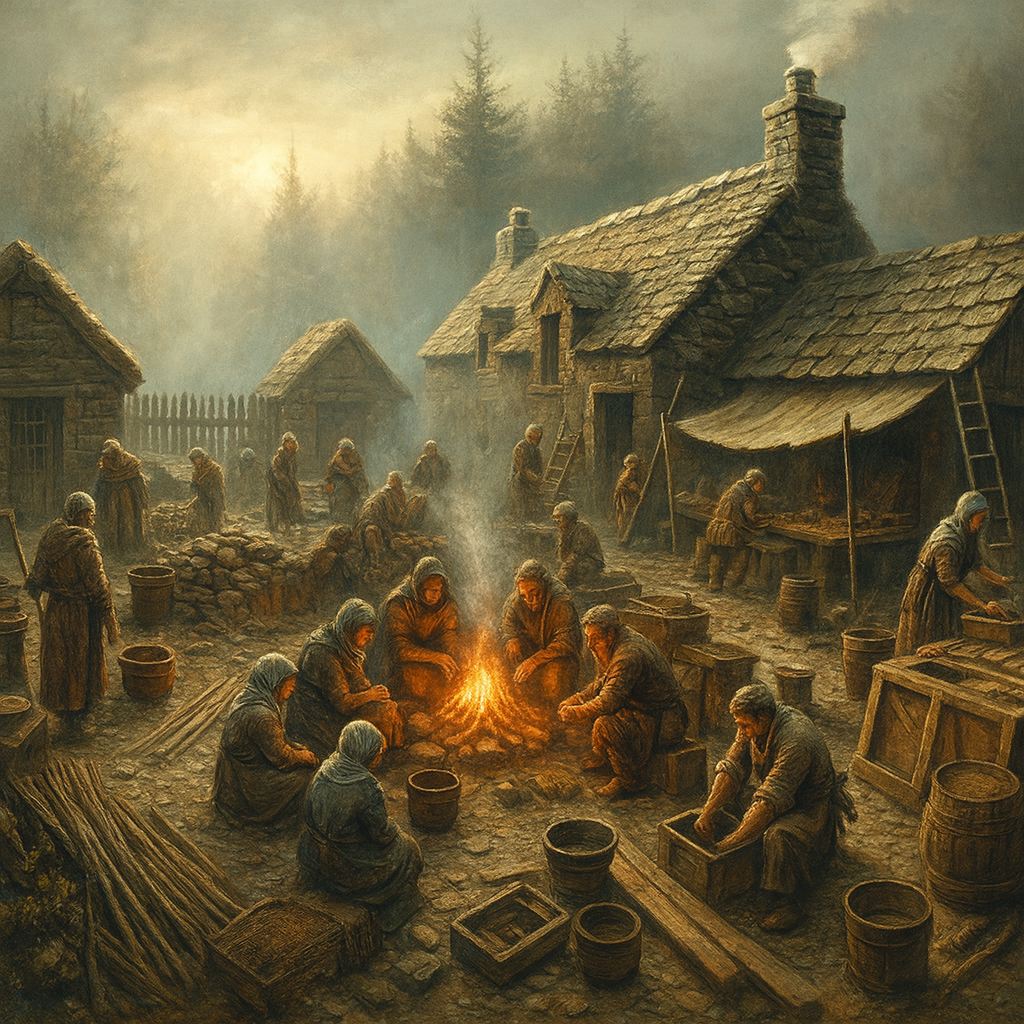The Collective over the Individual
"The wheel turns only when every spoke holds strong."
In Everwealth, the needs of the many outweigh the desires of the few, a hard-won truth forged in the desperation of The Great Schism, when cities burned and alliances frayed under the weight of magick and pride. It was in that collapse, amid ruined keeps and starving fields, that the Everwealthy learned to survive not through strength alone, but through unity, between kin, between strangers, even between former foes. To this day, that ethos remains woven into the very marrow of daily life. While individual accomplishments are still honored, great hunters, talented mages, skilled artisans. the glory of one means little if it does not serve the greater wheel. Villages gather not for spectacle, but for harvest, for repair, for defense. A broken roof or a missing child is rarely one family's burden. It is everyone's. This belief in communal obligation is neither gentle nor optional. Those who hoard during lean seasons, who refuse to aid in crisis, or who put self over the common need, are treated not with mercy, but with scorn. “A hand that does not help is a hand that turns to ash,” the folk say, and it is not merely metaphor. In some parts of Everwealth, a person who refuses a communal call-to-action may be denied festival rites, barred from trade, or ritually marked in ink or ash as a warning. Even kings are not immune. Monarchs who rule with greed over grace often find their courts abandoned, their soldiers silent, their names etched into history as cautionary failures. This collective-mindedness is not born of utopia, it is survival. In a kingdom still scarred by hunger, ruin, and monsters that care little for banners, every hand matters. To live in Everwealth is to carry not just your weight, but the weight of those beside you, and to know that, one day, they may carry yours.



Comments